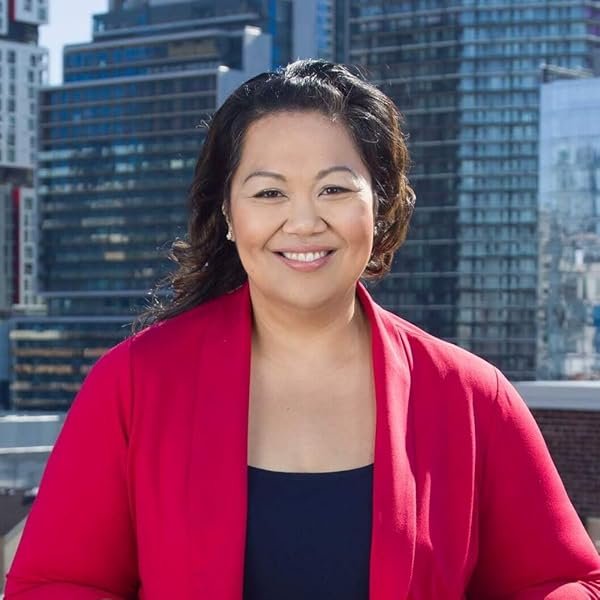Is Canada Failing to Wield Its Superpower?
Did you know Multiculturalism Day is on June 27?
Say it: Mul-ti-cul-tu-ra-li-sm.
This seven-syllabled,
quintessentially Canadian word is now banned in the United States as the government retracts
and dismantles diversity initiatives under the new administration.
We Canadians must decide: do we
follow our southern neighbour's retreat, or do we double down on this word? We
are at a crossroads and what’s at stake is the very heart of the Canadian
dream.
While many will mark June 27 and the
following Canada Day festivities on July 1 with festivals, flags, and more, I
believe we need to be sparking conversations.
The story of Canadian
multiculturalism isn't a simple success narrative—it's an ongoing journey of
learning, sometimes stumbling, but always striving to do better. When Pierre Trudeau's
government established our Multicultural Policy in 1971, they weren't just
creating legislation; they were setting up a national learning gap that we're
still working to meet today.
And in today's world, this very
Canadian trait, as one of the most multicultural countries in the world, is our
superpower.
But are we wielding it?
Missed Opportunities
2025 marks the 50th
anniversary of my family immigrating to Canada from the Philippines. With a
suitcase and seven kids in tow, my grandparents chose Winnipeg, Manitoba, as
home and 50 years later, I am a living embodiment of the Canadian dream they
hoped for.
Back in 1971, Pierre Trudeau's
government did something remarkable. They didn't just make a socially
progressive choice with our Multicultural Policy, they made an economically
brilliant one. Yet as the granddaughter of Filipino immigrants who arrived
around that time, I must ask: How much has actually changed in the half-century
since?
Only 36.5% of
foreign-educated nurses and 41.1% of internationally trained doctors work in their
fields in Canada. This "brain waste" costs us $39 billion annually,
according to the Conference
Board of Canada Economic Report 2024, but more importantly, it represents countless missed
opportunities to learn from global expertise and experience.
But here's where education comes in.
Cities like Toronto are showing us what's possible when we invest in
multicultural learning. The city has created more tech jobs in the last decade
than San Francisco, Seattle, and Washington, D.C., combined, largely because
companies here have learned to value and integrate diverse perspectives.
Research shows companies with diverse leadership outperform their
competitors by 33%—proof that multicultural competency directly impacts
success.
The innovation story continues across
Canada. From Montreal's AI labs to Vancouver's film sets to Waterloo's quantum
valley, we're seeing what happens when different viewpoints and experiences
come together. More than a third of our unicorn companies—35% of 41 startups
with valuations of $1 billion or more—were founded by immigrants or their
children. Each success story teaches us the value of embracing different ways
of thinking and working.
Connecting Across Cultures
My personal experience reflects that. Just as I regard
multiculturalism as Canada’s superpower, I consider a strong multicultural
mindset as my personal superpower and a great business asset.
In my early leadership roles, I often felt like an
outsider. I was the only woman, the only minority, the only one who saw
business opportunities others missed. But that outsider perspective became my
edge.
While others saw cultural differences as obstacles, I
saw them as opportunities. Businesses, governments, and organizations often struggle to
authentically connect with diverse audiences, but by embracing a multicultural
mindset, I’ve found ways to connect across cultures with both empathy and
strategy.
Even though many Canadian companies have natural
advantages in cultural intelligence thanks to our multicultural society, many
aren't leveraging this strength. Too often, we treat diversity as a checkbox
rather than a competitive advantage. But the future belongs to those who can
navigate our multicultural society with confidence and skill.
Getting Serious About Real Change
Unfortunately, I'm starting to hear
Canadian executives parrot the same tired arguments against diversity that
we're hearing from down south. Some Canadian companies have begun quietly
scaling back DEI programs, dropping multicultural marketing efforts, and
adopting the divisive language of “we only hire on merit,” as if diversity and
merit were somehow opposites.
Let me be blunt: this isn't just
wrong—it's bad business.
This Multiculturalism Day, let's skip
the usual back-patting and get serious about real change. Instead of just
celebrating diversity, let's commit to learning from it. Let's transform our
workplaces into learning spaces where international experience is valued. We
shouldn't define our success just by being different from Americans. We should
measure it by building a country where your skills matter more than where you
learned them.
A country where the Filipino nurse can practice nursing, the Indian doctor can treat patients, the African engineer can build infrastructure, and the granddaughter of a Filipino mechanic can be a company CEO.
About Joycelyn David
Joycelyn David, author of The Multicultural Mindset: Driving Business Growth in a Borderless Era,
a No. 1 Amazon Bestseller, is the owner and CEO of
AV Communications (AVC), a leading multicultural marketing agency. She is also
the founder of TULONG, a B2B solutions start-up for the marketing and media
industries. In addition, David is an industry speaker and podcaster, and serves
on the board for the nonprofit organization POCAM (People of Colour in
Advertising & Marketing). Born in Canada to Filipino immigrant parents,
David earned her bachelor’s and master's degrees in social sciences, cultural
studies, and communications from the University of Alberta and York University.
Comments
There are 0 comments on this post





